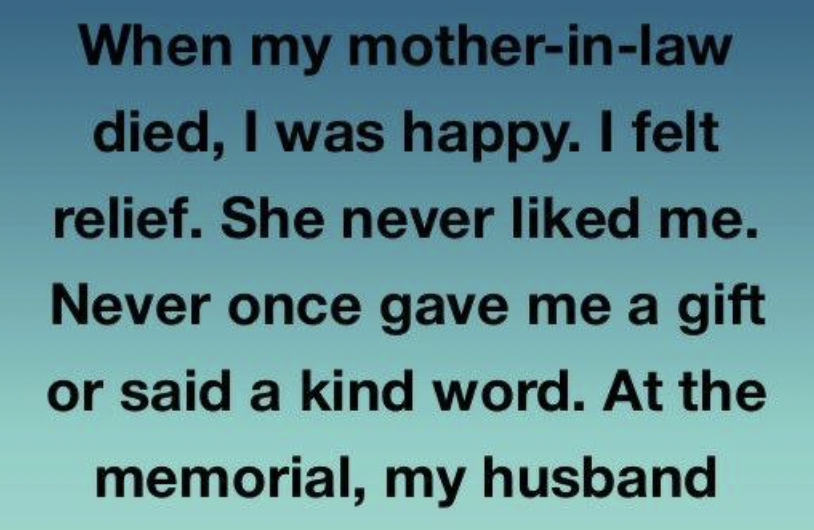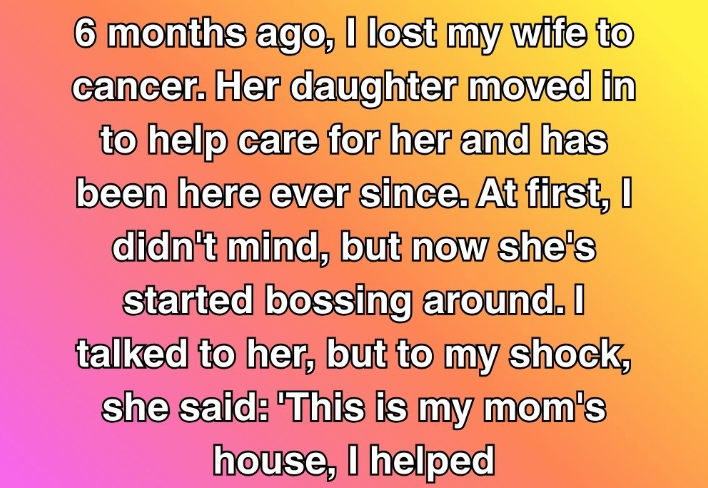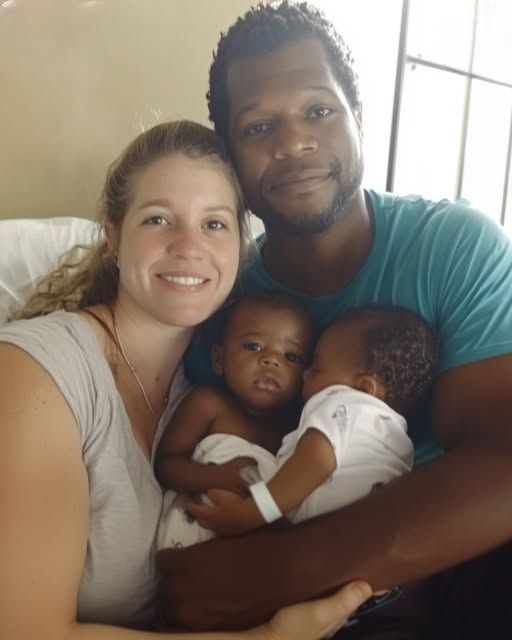When my mother-in-law passed away, sorrow was anticipated. Yet, unexpectedly, a sense of calm settled over me.
For years, her disapproval of me was unmistakable. Her glances carried judgment, her words were sharp and brief, and her silences stretched long whenever I entered a room. Never once did she extend the kindness I craved.
So when the memorial concluded and my husband quietly handed me a small box, confusion washed over me.
“She intended for you to have this,” he said, his face a mask of neutrality.
I furrowed my brow. “For me? Are you certain?”
He nodded. “She was explicit. She said you should open it today. By yourself.”
That word—by yourself—resonated deeply within me.
The Necklace Bearing My Initials
That night, in the quiet of our home, I opened the box.
Nestled inside was a silver necklace with a delicate teardrop pendant, adorned with a small sapphire. It gleamed softly, as if it had been patiently waiting for this moment.
I turned it over in my hands—and paused.
Faintly engraved on the back were two letters: L.T.
My initials.
Was this a mere coincidence? Or had this been destined for me long before now?
As I examined the box further, my fingers touched a folded piece of paper. A letter. My name was written in her distinctive, precise handwriting.
My heart raced as I hesitated. Then, with unsteady hands, I unfolded it.
The Letter That Surprised Me
Her words left me speechless.
“If you’re reading this, I’m no longer here. And if you’re reading this, it means I’ve finally found the courage to speak. I never said it when I should have, but I misjudged you. From the start. And I owe you an explanation.”
I could hardly breathe. This woman, who had only ever criticized me, was acknowledging her error?
“I didn’t resent you for who you were, but for what you represented to me. In you, I saw my younger self—bold, driven, unafraid to speak her mind. I was once like that, before I surrendered it all for marriage, for propriety, for people who never appreciated it.
When you married my son, I feared he would dim your light as his father did mine.”
Tears welled in my eyes. My husband was not his father. But perhaps, through her lens, she saw echoes I couldn’t perceive.
“Instead of embracing you, I criticized you. I acted as though you fell short, when in truth, you embodied more than I ever dared to be. I carry that regret.”
I pressed the letter to my lips, my chest tightening. All those years of distance, and only now, in her absence, did she share the words I had longed to hear.
The final lines read:
“This necklace once belonged to me. A gift from a man I loved before my husband. His name was Lucas—the L. I added the T later, for the daughter I never had. I dreamed of raising a girl to be fearless. I never had her. But in a way, I see her in you.”
Sleep eluded me that night.
The Key That Unlocked Her Past
A week later, her lawyer summoned us for the reading of her will. Most of her possessions were modest: her home, a small savings account, a few pieces of jewelry.
Then the lawyer handed me a sealed envelope.
“She included a special provision for her daughter-in-law,” he said, passing it to me.
Inside was a small brass key. And a note: “She’ll understand its purpose.”
At first, I didn’t. But then I recalled—the attic. A small door she had once sharply told me never to touch.
We drove to her house. Without her presence, it felt smaller, quieter. Behind a worn curtain, we found the attic door. My hand trembled as I inserted the key.
The door groaned open, releasing a scent of cedar and time. Inside was an old trunk.
I lifted the lid.
Inside were dozens of journals.
The Woman I Never Knew
Her handwriting spilled across countless pages.
Aspirations of painting. Regrets over paths not taken. Loneliness she never voiced. Yearning for Paris she never visited. Love letters to Lucas, the man she released.
In one journal, I found a photograph of a watercolor she had painted: a woman standing solitary in a garden. On the back, she had written: “Me, before I faded away.”
My throat tightened.
She had been an artist. A dreamer. A woman who lost herself to obligation, to expectations, to resentment.
I spent hours reading, tears falling onto the pages. At last, I saw the woman beneath the icy facade. She hadn’t despised me. She had struggled with the reflection of her former self, mirrored in me.
A New Path from Her Legacy
Weeks later, inspired, I entered one of her paintings in a local art show under a pseudonym. To my amazement, it was accepted. Viewers described it as “subtly poignant.”
I submitted more. Soon, a gallery reached out.
When I revealed that the artist was my late mother-in-law, they proposed an exhibition. It was modest, but it was real. People stood before her work, moved to tears by the quiet sorrow in her brushstrokes.
I wish she could have witnessed it. Or perhaps, in her way, she did.
Then another letter arrived from her lawyer. A safety deposit box, accessible only to me. Inside was a check for $40,000—and another note.
“If you ever choose to pursue your dream, this is my way of supporting you. Don’t tell my son. He wouldn’t understand. But you will.”
I wept harder than I had in years.
With that money, I opened a small gallery downtown—a space for overlooked artists, particularly older women who had never been given their moment. I named it The Teardrop. After her necklace. After her.
What She Truly Bequeathed Me
Three years have passed.
The necklace rests against my collarbone nearly every day. The journals are preserved in the gallery’s back room, available to anyone who wishes to know the woman she truly was.
My husband visited once. He stood before her painting of the garden woman and murmured, “I never knew she felt like this.”
Neither did I.
But now the world knows. And perhaps that’s the purpose.
Sometimes, apologies don’t come in spoken words. Sometimes, they arrive in what’s left behind—in a necklace, in a trunk of journals, in truths tucked away in an attic.
If you’ve ever felt rejected, judged, or unloved, hold this truth: sometimes it’s not about you. Sometimes the iciest hearts carry the deepest wounds.
And sometimes, forgiveness arrives not in a neat package—but it can still liberate you.




